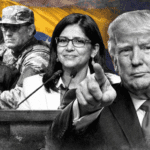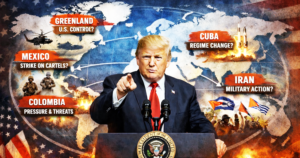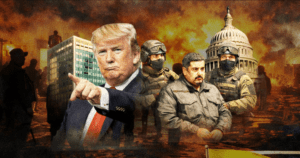Jon Stewart unleashed an expletive-fueled monologue on The Daily Show, excoriating CBS and its parent company, Paramount Global, following the announcement they will cancel The Late Show with Stephen Colbert in May 2026. Stewart rejected CBS’s claim that the decision was “purely financial,” arguing instead that it was a calculated act of self-censorship tied to corporate interests and political appeasement.
He identified two potential pressures: first, Paramount’s looming $8 billion merger with Skydance Media, contingent on regulatory approval during the Trump administration; second, a troubling $16 million settlement with Trump over a 60 Minutes interview, which Stewart described as “selling out”.
“Pre‑Compliance” as a Threat to Free Expression
Stewart framed the cancellation as symptomatic of what he called “fear and pre‑compliance”, a proactive shrinking from controversy to avoid risking corporate transactions. He warned networks that from such bland neutrality, audiences will “serve up gruel so flavorless” and eventually desert them. It’s not just about one show, it’s a dangerous precedent. When boards and executives preemptively silence dissenting voices, they corrode the very foundations of a free press and meaningful satire.
Theoretical Dimensions: Self-Censorship and Power Structures
What Stewart’s denunciation reveals taps into long-standing theories in media studies and political economy:
Structural Self-Censorship
By avoiding content that could jeopardize major business deals, media conglomerates may internalize external pressures. Stewart’s critique lays bare an industry in which executives increasingly prioritize regulatory harmony and investor confidence over editorial autonomy.
Media Capture and Democratic Health
Political scientists have warned of “media capture”, where commercial or governmental powers dominate media logic. A merger-influenced show cancellation to mollify a political figure is textbook media capture. The outcome? Audiences receive less critical information, weakening democratic deliberation.
Satire as Democratic Checkpoint
Late-night hosts like Colbert and Stewart have long served as informal watchdogs, satirizing power and exposing contradictions. Stewart’s argument implies that when these voices are muzzled, a key check on political authority wanes.
Broader Implications for U.S. Media Freedom
This episode involving Jon Stewart’s explosive rebuke of CBS and the cancellation of The Late Show with Stephen Colbert resonates far beyond entertainment circles. It underscores a deeper shift in how corporate and political interests intersect to influence media behavior in the United States. One significant concern is the potential normalization of institutional precedent. If CBS, a legacy network with substantial clout, is willing to cancel its flagship late-night program under opaque circumstances tied to political and business calculations, then other outlets may follow suit, opting for editorial restraint rather than risking regulatory friction or financial disruption.
This, in turn, amplifies calls for regulatory scrutiny. The timing of CBS’s decisions, amid a multibillion-dollar merger and legal settlement involving former President Donald Trump, has prompted figures such as Senators Elizabeth Warren and Adam Schiff to suggest formal investigation into whether partisan politics improperly shaped media outcomes. If substantiated, such findings could catalyze reforms around media consolidation and antitrust enforcement, especially as political cycles intensify.
Equally vital is the erosion of public trust. Audiences increasingly perceive media corporations not as independent guardians of truth, but as extensions of elite commercial interests. This skepticism breeds disengagement and cynicism, creating fertile ground for misinformation and partisan echo chambers. Without clear evidence of independence and editorial courage, media outlets risk becoming irrelevant to a public desperate for accountability and transparency.
Finally, there is a growing cultural void left by the suppression of sharp, satirical voices like Colbert’s. Satire has long served as a vehicle for democratic critique, offering a digestible yet cutting counterbalance to mainstream narratives. When those voices are muted for strategic or financial reasons, the result is not just quieter airwaves but a weakened democracy, one in which power is less questioned and more quietly endured.
What Comes Next: Resistance or Resignation?
Stewart concluded with a stirring appeal, urging media executives to find the courage to stand firm against political pressure and not shrink from controversy in pursuit of corporate safety. He called on them to show backbone and defend the integrity of independent voices rather than capitulating to fear-driven decisions.
Whether this rallying cry provokes resistance is yet to be seen. What we do know is this: media institutions now face a stark choice, withdraw into safe neutrality or reclaim their role as unapologetic critics of power.
A Final Note: Beyond a Show’s Cancellation
Jon Stewart’s monologue is more than a rant; it’s a clear signal that U.S. media freedom is at a critical juncture. The cancellation of The Late Show isn’t just about money; it’s emblematic of how corporate and political forces can converge to silence voices that matter. Without bold, independent satirists, the public loses a vital mirror on democracy’s flaws, leaving only sanitized, risk-averse coverages in its place.
For journalists, executives, and viewers alike, Stewart’s words resonate as both warning and invitation: challenge the impulse to censor, or accept a quieter, less courageous media landscape.
















